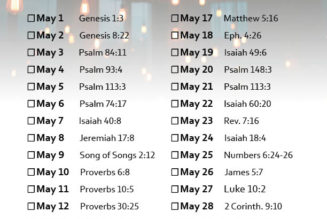Imagine a corporation needed to train new sales representatives to expand its market. Unfortunately, the company could not bring all the new employees to its headquarters, so it was decided to send out trainers to the various new markets and train the salespeople there.
However, the trainers all had different ideas about what the corporate philosophy and sales methods were! The new salespeople were all taught different things! What confusion!
A similar difference in teaching has occurred in the various Christian churches, each of which has its own understanding of what the true gospel is. Some say it is “the gospel of grace.” Others call their version “the gospel of salvation” or “the gospel of Christ.” To others, it is “the gospel of God” or “the gospel of the Kingdom.” Which is it? How does the Bible define the true gospel? The only true gospel is the one presented in its pages, and we can search it out! Below are eight QUESTIONS;
1. Does it matter what gospel Christians believe? Galatians 1:8-9.
Indeed, it does! Paul pronounces a double curse on anyone who preaches a gospel different from the one preached by the apostles! The gospel is a serious business! The apostles were taught directly by Christ, who gave them a commission to “preach the gospel” (Mark 16:15).
2. What gospel did Jesus Himself preach? Mark 1:14.
Jesus preached “the gospel of the kingdom of God”! “Gospel” derives from an old English word meaning “good news.” He came proclaiming the good news that God’s Kingdom would come and restore all things (Acts 3:19-21). Jesus is the King of a literal Kingdom that will reign over the whole earth when He returns (see John 18:36-37; Revelation 5:10; 19:11-16; 20:4-6). The gospel explains, not only that it is coming, but also how we can be a part of it. That is great news!
3. What did Christ say we must do to enter it? Mark 1:15.
The conditions for entering God’s Kingdom are simple in concept: “repent and believe in the gospel.” Repentance is a complete turning or changing of the mind and way of life to follow God. And God’s way of life is defined by His commandments (Matthew 19:17). We repent by quitting our former sinful way of life and keeping God’s commands.
Believing the gospel encompasses both believing in Christ as well as believing what He said (John 8:30-31). Millions believe that He came as their Savior and now lives eternally as their soon-coming King while rejecting the very message He brought to save them! What a paradox!
4. Where did Christ’s message originate? John 12:49-50; 14:24; 17:7-8.
Jesus spoke only what His Father in heaven told Him to speak! Thus, our Messiah, Jesus Christ, was a Messenger from God the Father, bringing the message of God’s plan for all mankind, the message of the New Covenant (Malachi 3:1). The gospel of God, the gospel of Jesus, and the gospel of the Kingdom are the same gospel! It originated in God, was proclaimed by His Son, and tells of the coming rule of God and our part in it!
5. What is “the gospel of grace”? Acts 20:24-25.
In these verses, Paul is speaking to the elders of the church in Ephesus about his ministry. He explains that his ministry had testified “to the gospel of the grace of God.” And what had he preached? The Kingdom of God (see Acts 28:30-31)! God’s wonderful offer of grace and salvation is also part of the gospel of the Kingdom!
6. Is the church the Kingdom of God? Colossians 1:13.
While Christians await the establishment of God’s Kingdom on the earth at the return of Jesus Christ, they are considered by God to be spiritually a part of His Kingdom. Having voluntarily placed themselves under Christ’s rule, they are said to have their citizenship in heaven (Philippians 3:20) and be “members of the household of God” (Ephesians 2:19). As members of Christ’s body, they are “in Christ” (Romans 8:1; II Corinthians 5:17), and therefore are actively participating in the advancement of God’s Kingdom. However, Christians have not yet inherited the Kingdom in its fullness, an event that will not happen until they are resurrected and glorified at Christ’s coming (I Corinthians 15:50-54). In addition, their being “in Christ” does not preclude their falling away from Him in the future (Hebrews 6:4-6; 10:26-31).
7. Is the Kingdom of God “within you”? Luke 17:21.
This sadly mistranslated verse has led many sincere people astray. Without even knowing the Greek language, we can see that Jesus could not mean that the Kingdom was some ethereal quality in the hearts of the Pharisees! On the contrary, He castigated them often for their unbelief! Entos, translated “within,” should be translated “in the midst of” or “among.” Jesus, the coming King of the Kingdom of God, was in their midst or among them! The thrust of His teaching in this section is that unbelievers will not recognize the working of God’s Kingdom among them, just as the Pharisees had not recognized their Savior among them.
8. What gospel is to be preached before the end comes? Matthew 24:14.
The gospel of the Kingdom is for today! It is preached, not only when we proclaim that Jesus Christ will return soon to establish His government upon this earth (Isaiah 9:6-7; Zechariah 14:9), but also when we teach both believers and unbelievers how to live God’s way of life (I Corinthians 15:1-2; Philippians 1:27; I Thessalonians 2:8-9). That is truly good news!










